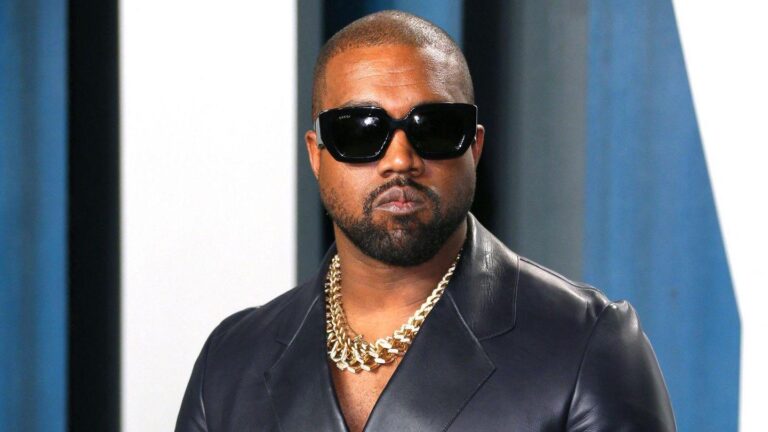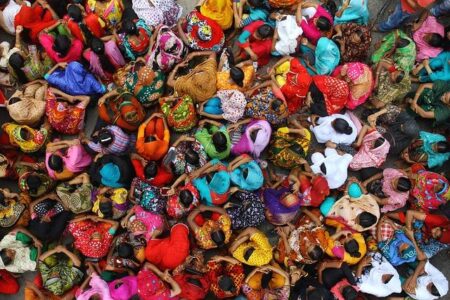Australia has revoked rapper Kanye West’s entry visa following the release of his controversial song containing the phrase “Heil Hitler,” prompting widespread condemnation and renewed debate over hate speech in the music industry. The country’s immigration authorities cited concerns over public order and community safety in their decision, marking a significant reaction to the artist’s latest provocative statements. This move underscores the increasing scrutiny faced by high-profile figures whose work crosses into controversial or offensive territory.
Kanye West Entry Visa Revoked by Australia Following Controversial Song Release
Australia’s immigration authorities have made a swift and decisive move following the release of Kanye West’s latest track, which sparked widespread outrage due to its offensive content. The track, controversially titled with explicit references glorifying Nazi symbolism, prompted the government to revoke the rapper’s visa, citing concerns over public safety and social harmony.
The Department of Home Affairs released a statement outlining the rationale behind the decision, emphasizing the importance of upholding Australia’s strict policies against hate speech and extremist material. Key points highlighted included:
- Potential public order risks associated with West’s intended public appearances.
- The need to preserve Australia’s multicultural values and prevent incitement.
- Enforcement of the Character Test under the Migration Act 1958.
| Criteria | Application | Outcome |
|---|---|---|
| Character Test | Assessment of public statements | Failed |
| Public Safety | Evaluation of potential risks | High Concern |
| Community Impact | Multicultural harmony consideration | Negative |
Impact of Artist’s Provocative Content on International Travel and Diplomatic Relations
The controversy sparked by the release of the song featuring the contentious phrase has triggered a significant diplomatic uproar. Australian authorities promptly revoked the artist’s entry visa, citing concerns over potential public unrest and the broader implications for bilateral ties. This incident highlights how provocative artistic expressions can transcend creative boundaries, influencing not only public sentiment but also governmental decisions and international diplomacy.
Such cases underline an evolving dynamic where governments are compelled to balance freedom of expression against national security and public harmony. Key points in this scenario include:
- Diplomatic Sensitivity: Nations are increasingly vigilant about content that can inflame historical wounds or incite controversy.
- International Travel Restrictions: Visa revocation serves as a tool to address perceived threats arising from cultural provocations.
- Impact on Global Image: Countries must carefully manage how such incidents affect their reputation and relations abroad.
| Stakeholder | Role | Effect |
|---|---|---|
| Artist | Content Creator | Restricted international mobility |
| Australian Government | Immigration & Security Authority | Visa revocation decision |
| Diplomatic Channels | Mediation & Negotiation | Increased diplomatic tensions |
Recommendations for Governments in Managing Visa Policies Amid Public Backlash to Artistic Expression
Governments facing the complex task of managing visa policies amid controversies sparked by artistic expression should adopt a balanced approach that respects freedom of speech while safeguarding public interest. Establishing clear, transparent criteria for visa revocations related to inflammatory or offensive content can help prevent accusations of arbitrary censorship. These guidelines should be consistently communicated and applied, emphasizing the protection of societal values without undermining international cultural exchange.
Moreover, engagement with cultural experts, legal advisors, and community representatives is essential for informed decision-making. This collaborative framework can facilitate nuanced assessments of artistic works, distinguishing between genuine artistic expression and content that incites hate or violence. In practice, governments might consider implementing:
- Periodic reviews of visa policies with public input to stay attuned to evolving social norms
- Dispute resolution mechanisms enabling artists to appeal visa decisions transparently
- Public awareness campaigns clarifying the rationale behind visa restrictions to reduce misinformation and backlash
| Policy Element | Purpose | Expected Outcome |
|---|---|---|
| Clear Criteria | Objectivity in visa decisions | Reduced allegations of bias |
| Expert Consultation | Contextual understanding | Balanced evaluations |
| Appeal Process | Transparency & fairness | Increased trust in government |
| Public Communication | Inform & educate society | Decreased public backlash |
In Retrospect
The revocation of Kanye West’s Australian entry visa following the release of his controversial song underscores the increasing scrutiny artists face when engaging in content that sparks public outrage. As international governments weigh the impact of such expressions on their communities, this incident serves as a stark reminder of the complex interplay between creative freedom and societal responsibility. The situation remains dynamic, with both legal and diplomatic ramifications likely to unfold in the coming weeks.




